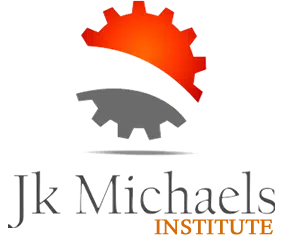Compensation Benefit Administration & Reward Management training course will employ thorough case studies and cutting-edge research to demonstrate reward strategies from an administrative, strategic, and psychological perspective. Rewards management is inextricably linked to an organisation’s performance, productivity, turnover, attitude, and overall health. Rewards include compensation, money, benefits, salary, and praise. As a result, rewards are a crucial and fundamental component of the fabric of every organisation, large or little, public or private.
Employers who know their business must offer the correct perks and remuneration to attract and retain outstanding personnel. Wages, salaries, bonuses, and commission plans all count as compensation. It demonstrates your appreciation for them as people and employees that you pay your staff fairly. People are more motivated to report to work when they feel appreciated.
Employee motivation to show up for work and perform well rises across the organisation. Employees’ motivation to act better also increases when they are aware of incentives or commissions—the focus of success shifts to bonus and commission incentive schemes.
Training course on compensation, benefits administration, and reward management
The training course on compensation, benefits administration, and reward management will use thorough case studies and the most recent research to illustrate incentive techniques from an administrative, strategic, and human standpoint. Reward management is closely related to performance, output, turnover, attitude, and the general health of an organisation. The term “reward” refers to compensation, perks, salary, and praise. An organisation’s fabric comprises many elements, including compensation, award, and other forms of reward. No organisation can function effectively without tips, no matter how big or little, public or private.
This fascinating and ground-breaking Anderson online training course examines and analyses incentive techniques from a managerial, strategic, and interpersonal standpoint. Performance, productivity, turnover, attitude, and the general health of an organisation are all strongly correlated with managing rewards. It is an excellent course for anybody engaged in compensation, benefits administration, or incentive management. It covers the successful management of human resources, how to design compensation to meet workplace culture, and the strategic influence of pay and motivation. A company has to offer a package for employee remuneration that is alluring, acceptable, and reasonable to attract and keep high-level personnel.Additionally, it is more complex than paying well to keep and inspire high-calibre staff. Employees’ advancement and personal growth objectives must be considered when designing remuneration packages. Finally, organisations must understand the differences between intrinsic and extrinsic rewards; extrinsic rewards might be monetary or non-monetary, whilst intrinsic reward calls for the supply of exciting and fulfilling employment.
The Compensation & Benefits Administration training course will address the issue of how such processes can be managed and will cover topics like; employee motivation, performance management, and extrinsic and intrinsic reward. The maintenance of standards through the management of employee conduct, job evaluation, short-term and long-term incentives, the significance of the first line supervisor or team leader, the use of competencies, personal development, career planning, and promotion.
COMPENSATION BENEFIT ADMINISTRATION & REWARD MANAGEMENT TRAINING LEARNING OUTCOME
By the end of the course, participants should be able to:
- Explain how fundamental economic, psychological, and motivational ideas impact reward.
- Discuss the role of a company’s incentive schemes and policies.
- Help with the management of employee-reward rules and procedures.
- Distinguish the elements that affect employee satisfaction with the incentive scheme.
- Make a case for non-monetary incentives in attracting, keeping, and inspiring employees.
- Create an intelligent reward scheme.
- Explain how economic, psychological, and motivational ideas impact reward.
- Discuss the role of a company’s incentive schemes and policies.
- Assess the fairness and equality of their organisation
PERSONAL IMPACT
- Maintain employee motivation to achieve more.
- Performance and enables them to thrive in whatever endeavour they undertake.
- Employee motivation has increased.
- Increase Employee Loyalty.
- Productivity and profitability have increased.
- Job Contentment.
ORGANIZATIONAL IMPACT
- To inspire employees to increase productivity yield
- It keeps the workforce moving.
- Maintain employee motivation to achieve more
- It enables the firm to reward its personnel based on their performance and help them excel in their endeavours.
- Productivity and profitability have increased.
- Employee motivation has increased.
JK Michaels institute also offers other products and courses, including Certified Life Coach Training, Developing High Performance Team Training, and Certified Life Coach.






